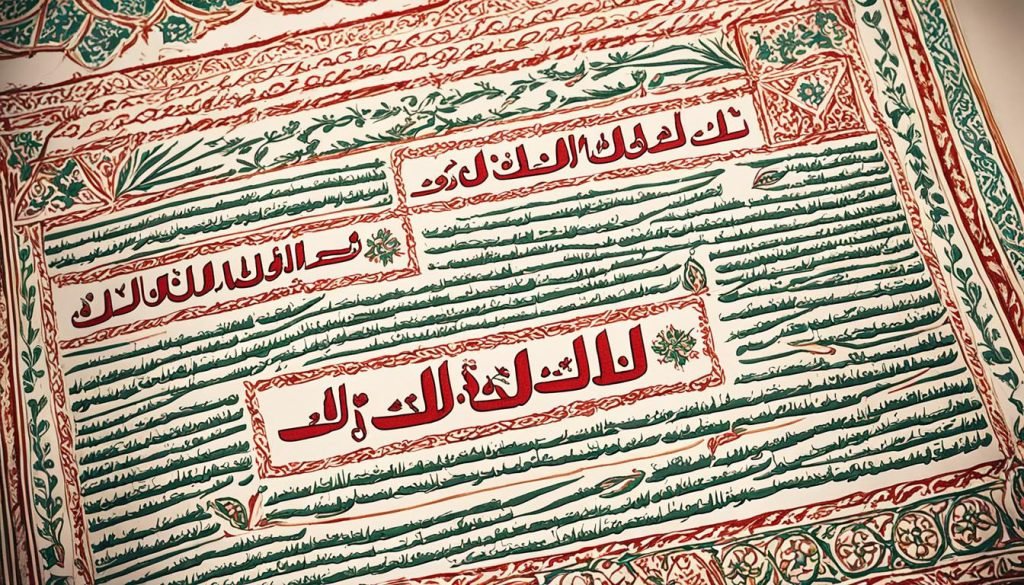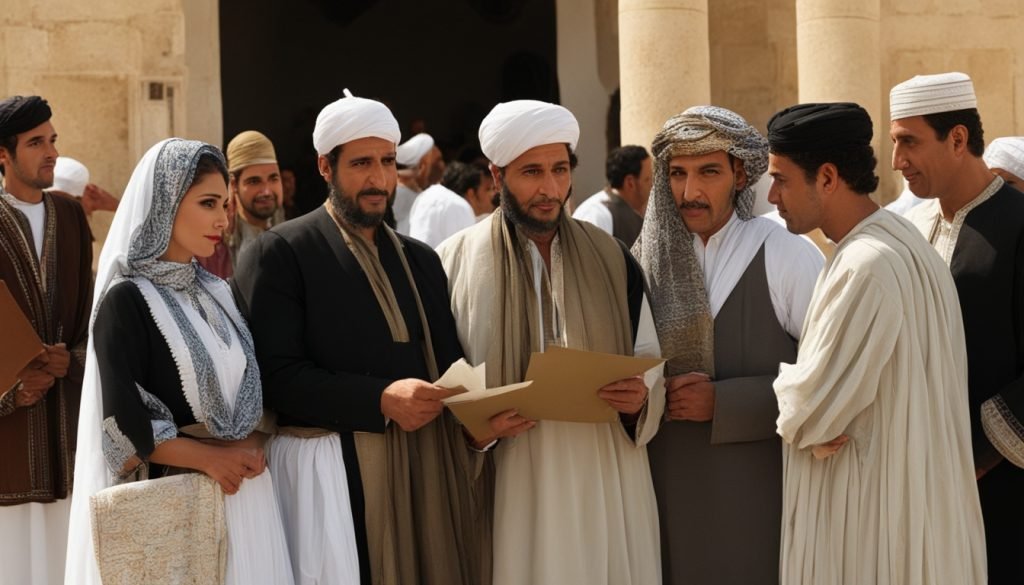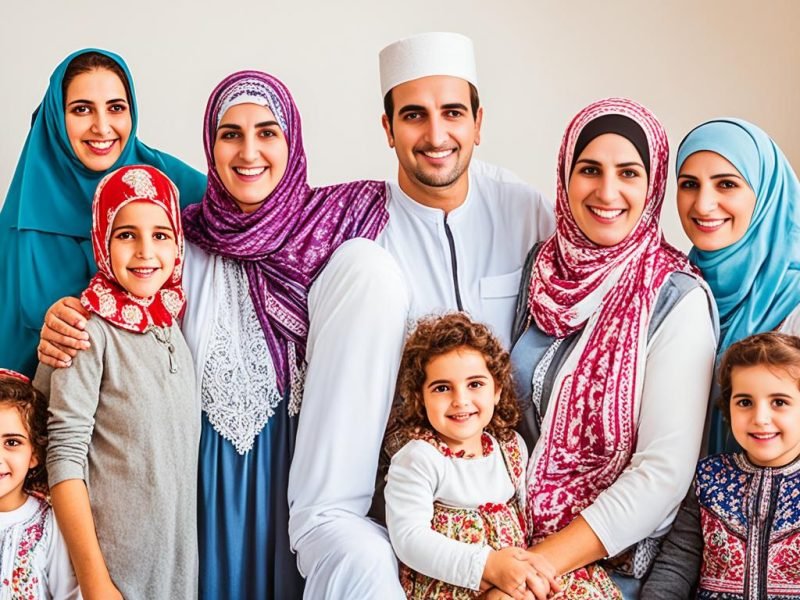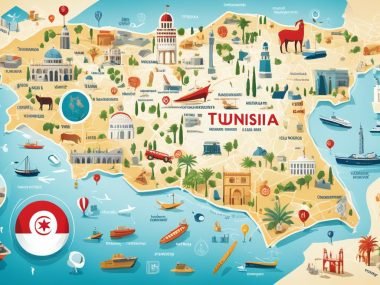Tunisia is known for its forward-thinking ways, especially among Arab nations. In 1956, the year it became independent, Tunisia banned polygamy first among Arab states. This move makes Tunisia stand out from other Muslim-majority countries where polygamy is common or controlled.
Key Takeaways
- Tunisia officially abolished polygamy in 1956.
- This reform coincided with Tunisia’s year of independence.
- Tunisia’s stance sets it apart from many other predominantly Muslim nations.
- Polygamy is still prevalent or regulated in many African and Middle Eastern countries.
- The ban underscores Tunisia’s commitment to progressive family laws.
Historical Context of Polygamy in Tunisia
Tunisia’s history with polygamy is deep. Stopping legal polygamy was a big change for society and laws. When Tunisia became independent in 1956, its leaders wanted to be different from other nations in the region.
Independence and Early Reforms
The year 1956 was crucial for Tunisia. It gained freedom from the French and started changing its laws. One big change was ending polygamy.
This was part of an effort to modernize the country. It aimed to improve values around family and women’s rights. Tunisia set itself apart from nearby countries with these changes.
The 1956 Personal Status Code
The The 1956 Personal Status Code made Tunisia focus on gender equality and modern family laws. It’s seen as very forward-thinking in the Arab world.
It banned polygamy and started new legal and social reforms. With these changes, Tunisia became a leader in personal freedom and law. It moved away from old religious marriage rules.
Tunisian Marriage Regulations
The Personal Status Code brought new rules to Tunisian marriage. It champions gender equality and personal rights within marriage. The removal of Circular n° 216 in September 2017 marks a big change. It lets Tunisian women marry men from other countries who aren’t Muslim.

Legal Marriage Age and Requirements
In Tunisia, you must be 18 years old to marry. This ensures both people are mature enough for marriage. Sometimes, a judge can make exceptions to this age rule. This allows some flexibility in the law while looking after everyone’s wellbeing.
Mixed Marriage Policies
The stance on mixed marriages in Tunisia has improved greatly. Ending Circular n° 216 removed old limits, allowing marriages between Tunisian women and foreign men of any faith. This shows Tunisia values freedom and equality, setting an example in the region.
Tunisia does not allow polygamy and has strict penalties for breaking this rule. You could go to jail or be fined. These tough actions show Tunisia’s serious approach to keeping marriages between two people only, following Tunisian marriage regulations.
Tunisia Polygamy Laws Explained
In Tunisia, polygamy is strictly outlawed. Modern laws maintain the ban set in 1956. We’ll look closer at today’s laws and the penalties for breaking them.
Polygamy and Modern Legislation
Tunisia clearly says no to polygamy with its laws, keeping a rule made over 60 years ago. Its laws show Tunisia’s forward-thinking. They ensure that polygamy is banned. Unlike some nations, Tunisia keeps a firm stance. This ban shows its focus on individual rights and fairness between genders.
Legal Consequences for Polygamy Offenders
So, is polygamy legal in Tunisia? The answer is no, and the law is strict for those who break it. Polygamous marriages can lead to jail time and fines. This shows how seriously Tunisia takes this law. Anyone with a married person faces these penalties, highlighting Tunisia’s strict approach.
| Offence | Legal Consequences |
|---|---|
| Engaging in a polygamous marriage | Imprisonment, monetary fines |
| Entering a relationship with a married individual | Imprisonment, monetary fines |
Current Status: Does Tunisia Allow Polygamy?
In Tunisia today, the law only allows marriage to one person at a time. This means polygamy in Tunisia is illegal and not recognised. Even with cultural and religious pressures, the country stands firm against polygamy. This is quite different from other Arab countries where polygamy might be allowed.
Looking at the current status, it’s clear Tunisia’s laws against polygamy come from a long history. The 1956 Personal Status Code started this by banning polygamy in Tunisia. It showed Tunisia’s dedication to treating everyone equally. Today, this law is still strong, leaving no room for polygamous marriages.

So, the answer to “does Tunisia allow polygamy?” is a clear no. Polygamy in Tunisia is absolutely forbidden. This law helps define Tunisia as a forward-thinking nation. It’s different from many places nearby, where polygamy might still happen. Tunisia keeps promoting the idea of marrying only one person, keeping its modern and progressive values.
The Role of Religion and Culture in Tunisian Family Law
To understand Tunisian family law, we must see how religion and culture mix with laws. The 1956 Personal Status Code shows Tunisia’s forward-thinking approach. It is a key example of this mix.
Islamic Polygamy Practices
Islam allows a man to have up to four wives, if certain conditions are met. This idea comes from the Quran. Yet, Tunisia chose a unique path by saying no to polygamy. This shows its focus on civil laws over religious norms. It’s an unusual move in the Muslim-majority world.
Cultural Shifts and Legal Reforms
Tunisia’s culture has changed alongside new legal reforms. While old customs supported polygamy, people’s views have changed a lot. The Personal Status Code brought big changes in gender equality and family rights. These changes show that religion and culture in law are always changing.
The government’s laws have helped change the culture. They put individual rights and equality first. Tunisia leads the region in this. It has started a big discussion on keeping laws up to date with current values.
“The abolition of polygamy in Tunisia reflects a broader commitment to gender equality and individual freedoms, paving the way for a more inclusive society.”—Said Ferjani
The mix of cultural changes and legal reforms shows religion and culture can balance in modern laws. Tunisia keeps making progress on gender equality. It shows how a nation can keep traditions while embracing modern values.
Conclusion
Tunisia’s ban on polygamy shows its dedication to modern family law and fairness between genders. Since 1956, when the Personal Status Code was passed, Tunisia has been clear about its stance on polygamy. This has made Tunisia stand out in the Arab and African areas.
The rules against polygamy highlight Tunisia’s support for monogamous marriages. This supports a legal setting that values equality between men and women.
Tunisia’s laws show a secular approach to family issues. This differs from the religious norms in many Muslim countries. By sticking to these laws, Tunisia promotes personal freedom and human rights.
Religion and culture still influence societal norms. Yet, Tunisia’s firm laws allow modernity and tradition to blend. The country’s ban on polygamy underlines its push for gender equality. As Tunisia progresses, it keeps valuing monogamous unions in its family law.







